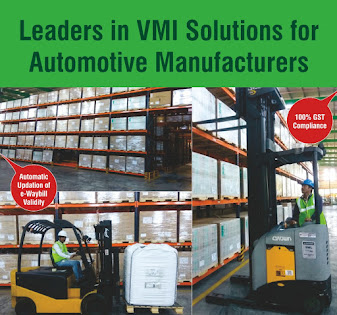Automotive logistics refers to the warehousing and transportation of spare parts, production material and finished vehicles in the automotive supply chain. The automotive logistics industry is fragmented in nature, with the presence of large global players as well as medium-sized and small-sized local players.
Most of the global logistics players have an automotive logistics division to meet the market needs and demand. Local players are increasingly enhancing their capabilities in terms of inventory handling, service offerings, products handled, and technology, to cater to the automotive industry.
The automotive industry is constantly evolving, and with the introduction of electric vehicles, the demand for automotive logistics is constantly increasing. And any forward-thinking logistics company in India needs to develop supply chain strategies, in order to exploit new market opportunities, reduce costs, and maintain competitive advantage.Types of automotive logistics
The market for automotive logistics has been segmented into finished vehicle and automobile parts. The automobile parts segment leads the market, which includes revenue generated from the logistics of spare parts from both the automobile manufacturer as well as aftermarket. Owing to stringent regulations related to carbon emission, a market for upgraded standard aftermarket parts for the existing vehicle fleet has been generated. This has helped in supporting the growth of the automobile parts’ segment.
The finished vehicle segment includes the revenue generated from the logistics of the finished vehicle. And this segment is estimated to expand owing to the rising demand for low emission vehicles and electric vehicles. This demand is attributed to favorable government initiatives, which include the availability of tax relief from the purchase of these vehicles. The rising demand for electric vehicles is also expected to boost the finished vehicle segment growth.
Transformation of Indian automotive logistics
Automotive logistics providers are also investing in technologies like Big Data and Connected Ship, to enhance their supply-chain management processes. These technologies aid in reducing labor costs, by making use of predictive assessment on routing, which eliminates delays in shipments.
In conclusion
The automotive logistics industry is expected to witness massive growth by improving connectivity, distribution networks and implementing new technology to track shipments. Earlier, automobile manufacturers incurred high cost of inventory due to the storage of automotive components and systems.
Now, by adopting strategies like Just in time (JIT), they can eliminate the cost related to all sources, unnecessary inventory and scrap in production. Implementation of JIT is done with the help of an effective supply chain and an efficient automotive logistics system.






No comments:
Post a Comment